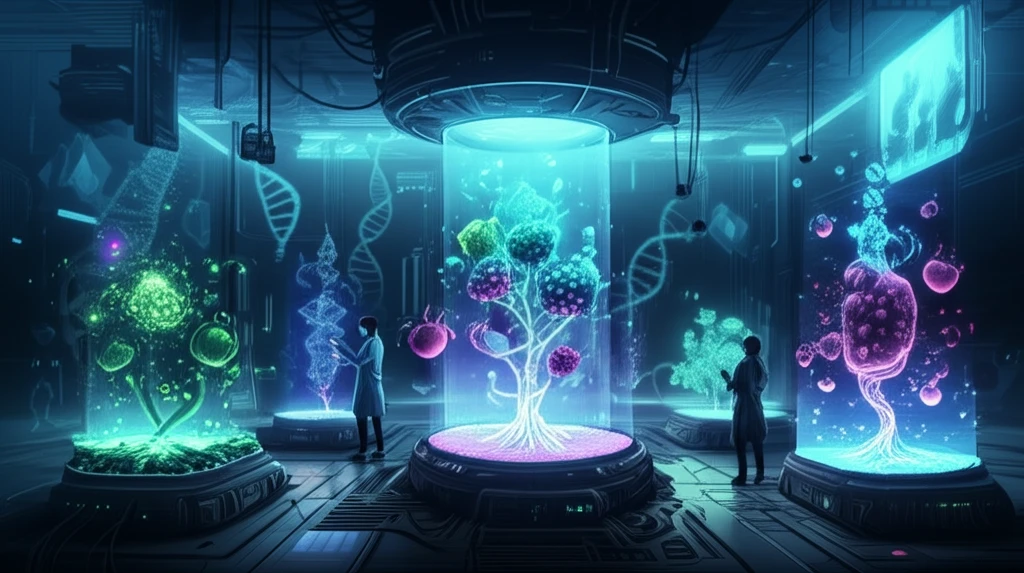
Future Foods: How Biotechnology is Revolutionizing What We Eat
"Discover how cutting-edge molecular biology and biotechnology are transforming horticultural crops, promising better nutrition, sustainability, and disease resistance."
For thousands of years, humans have selectively bred plants to enhance desirable traits, shaping the horticultural crops we depend on today. This traditional process, however, is slow and limited by natural genetic variation. Modern biotechnology offers a revolutionary toolkit to accelerate and expand these improvements, addressing critical challenges in food production and sustainability.
Molecular biology and biotechnology are now at the forefront of agricultural innovation, providing tools to enhance crop yields, improve nutritional content, and bolster resistance to pests and diseases. These advancements hold the potential to revolutionize how we grow and consume fruits, vegetables, and other essential horticultural products.
This article explores the current landscape of molecular biology and biotechnology in horticulture, examining techniques like genetic engineering and genome editing, and diving into how these innovations are shaping the future of our food supply. We'll also consider the perspectives surrounding genetically modified organisms (GMOs) and the exciting potential of new breeding technologies.
Unlocking the Potential: Plant Genetic Engineering Explained

Plant genetic engineering involves directly manipulating a plant's DNA to introduce or modify specific traits. This is achieved through various techniques, including:
- Enhanced Nutritional Value: Modifying crops to increase levels of essential vitamins, minerals, or antioxidants.
- Improved Resistance: Engineering plants to withstand pests, diseases, and harsh environmental conditions like drought or salinity.
- Extended Shelf Life: Developing fruits and vegetables that stay fresh longer, reducing waste.
- Novel Products: Creating plants that produce valuable compounds for pharmaceuticals or industrial applications.
The Future of Food: A Biotech Revolution?
Molecular biology and biotechnology are poised to play a central role in shaping the future of our food supply. As we face increasing challenges related to population growth, climate change, and resource scarcity, these technologies offer promising solutions to enhance crop production, improve nutritional value, and promote sustainable agricultural practices. By embracing innovation and carefully considering the ethical and environmental implications, we can harness the power of biotechnology to create a more secure and sustainable food future for all.
